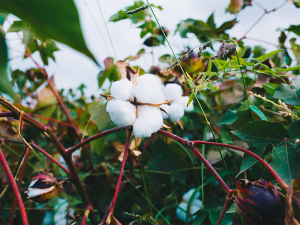The Role of Cotton Fabric Sustainability in Sustainable Fashion
As the fashion industry continues to evolve, sustainability has become a key focus. More and more clothing brands are seeking suppliers who can minimize environmental harm while maintaining quality and comfort. Cotton fabric sustainability plays a vital role in this movement.
SYS GROUP recognizes the environmental impact of cotton farming and champions the use of sustainable organic cotton in the apparel sector.
1.home textileand Homewear
Organic cotton’s non-toxic and hypoallergenic properties make it an ideal material for intimate apparel. Many consumers prefer garments made from organic cotton, which offers a soft, comfortable feel and reduces the risk of skin irritation. SYS GROUP effectively utilizes organic cotton in these applications.
2.Trench
The cotton content in our Trenchis gradually increasing. The fabric is comfortable and breathable, and when blended with other fibers, it provides an improved drape. Once crafted into Trench, the material resists wrinkling and maintains its structure for a long time, offering some water resistance.
3.Activewear
Compared to synthetic fibers, organic cotton’s breathability and moisture-wicking properties make it an ideal choice for low-intensity activewear, such as yoga and running apparel.
1. The History of Cotton
Cotton, a lightweight and warm natural fiber, boasts over 5,000 years of history, with its earliest uses emerging in the Indus Valley civilization. Over time, cotton spread globally, becoming an essential element of human life. Today, it remains a crucial textile raw material while facing environmental and social responsibility challenges.
2. Environmental Impact of Traditional Cotton
While traditional cotton farming is widespread, it often requires excessive water and harmful pesticides. These practices can lead to soil degradation, water pollution, and biodiversity loss, rendering cotton farming increasingly unsustainable. Additionally, the processing of traditional cotton involves non-biodegradable chemicals and harmful agents, resulting in significant heavy metal and formaldehyde contamination, complicating recycling efforts.
3. What is Cotton Fabric Sustainability?
Sustainable organic cotton production relies on natural farming methods, using organic fertilizers and biological pest control, avoiding chemicals from seed to harvest. Compliance with safety standards, such as those set by the WTO/FAO, ensures that harmful substances are kept within permissible limits. In sustainable fashion, cotton fabric stands out due to its comfort and cleaner production processes, enabling suppliers to meet eco-friendly demands from clothing brands. Organic cotton, free of chemical residues, reduces allergy risks and is particularly beneficial for infants. SYS GROUP recognizes the importance of sustainable cotton fabrics and exclusively uses certified organic cotton in all our products, delivering comfort and peace of mind.
4. Certifications and Standards for Sustainable Cotton
GOTS (Global Organic Textile Standard): SYS GROUP has achieved GOTS certification across our knitted green supply chain. This standard ensures that at least 70% of the textile components are made from certified organic fibers, overseeing all processes from harvesting to packaging, providing consumers with a greener, healthier experience.
BCI (Better Cotton Initiative): This certification promotes global cotton sustainability by improving production environments, increasing efficiency, and protecting labor rights. SYS GROUP ensures that all our products meet sustainability and social responsibility standards through BCI verification.
5. Innovations in Sustainable Cotton Fabrics
Sustainable development has spurred innovative solutions in the cotton industry, including:
- Water-saving Agriculture: Techniques like drip irrigation and rain-fed cotton farming are reducing water usage.
- Recycled Cotton: This emerging trend repurposes post-consumer cotton waste, creating new garments from old textiles, significantly minimizing environmental impact.
- Blended Sustainable Fabrics: Cotton is increasingly combined with other eco-friendly fibers like hemp and Tencel, leveraging the advantages of various materials to enhance performance.
6. Cotton and Circular Fashion
Sustainable fashion is closely linked to the concept of a circular economy, where products are designed for reuse, recycling, or upcycling to reduce waste and resource consumption. Organic cotton naturally fits this model due to its recyclability and biodegradability.
- Recycling: Cotton can be repurposed into new fabrics or utilized in other products like insulation or cleaning materials.
- Upcycling: Old cotton garments containing organic cotton can be transformed into new fashion pieces, contributing significantly to circular fashion.
By integrating cotton into circular fashion systems, brands can further reduce their environmental impact.
7. Conclusion: Embracing Cotton for a Sustainable Fashion Future
The sustainability of cotton fabrics is crucial for building a more sustainable fashion industry, playing a key role in reducing the industry’s carbon footprint. As a leading international apparel group, SYS GROUP is committed to using certified organic cotton that meets the demands for both style and comfort.Welcome to leave a message and choose your favorite cotton clothing for your brand!




